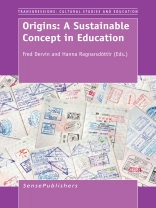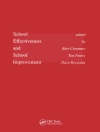Although we live in an era of multiple identities and belongings, origins still seem to matter. For most people origins are obvious and transparent. We all come from somewhere. Yet talking about one’s origins can be highly sensitive and problematic depending on our roles, emotions, interlocutors and contexts. This volume problematizes the relativity, instability and politics of the concept in the field of education. The authors examine how origins are played upon in many and varied educational contexts and propose alternative ways of dealing with – see reinventing – origins.
This volume is original in several senses. It is one of the first books to deal directly and honestly with the thorny concept of origins in education. Balancing arguments for and against the advantages and drawbacks of origins, the volume will appeal to confirmed and novice researchers, practitioners and decision-makers who struggle with these elements. The volume is not a ‘recipe book’ to be followed as such. It offers fresh and sincere perspectives to current discussions on multiculturalism, intersectionality and social justice in education around the world by tackling a somewhat taboo subject.
Spis treści
Introduction; Section 1: Deconstructing Origins; Strategies in ‘Cross-Cultural’ Dealings – Rejecting or Highlighting the Matter of Origin; (De)Constructing Origin in a Stratifi ed Classroom/Society: Israeli Ashkenazi, Mizrahi and Palestinian Arab Students in a Multi-Origin Educational Program; Discursive Disruptions in the Little Boxes of Academic Work; Indigenous and Non-Indigenous Medical Students’ Perspectives on Willingness to Serve in Underserviced Communities; Section 2: Reinventing Origins in Education Students with Special Needs: Defi ned by Their Origin?; The Recognition of Students’ Origin in Liquid Times; Being George: “I Am Now What I Am Right Here”; About the Contributors.












